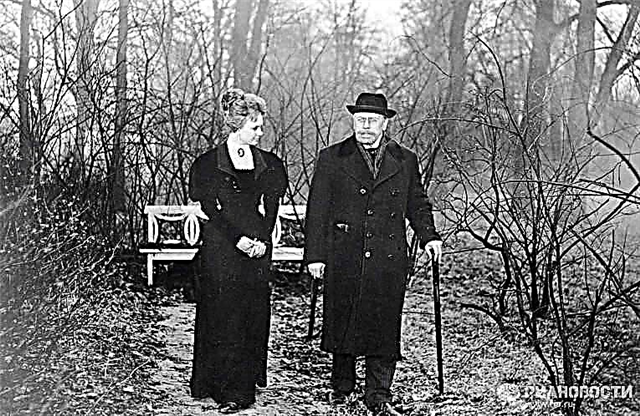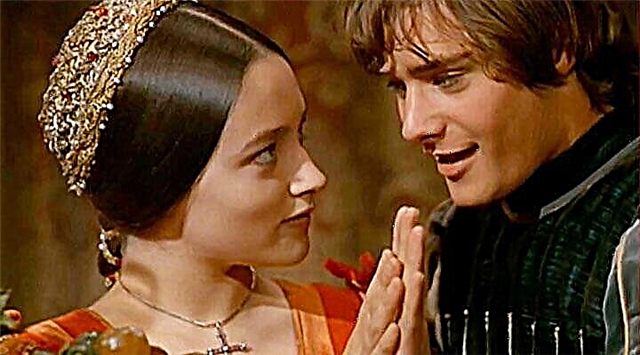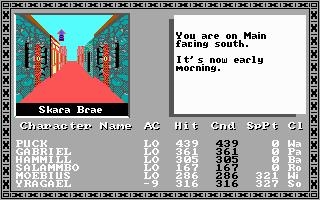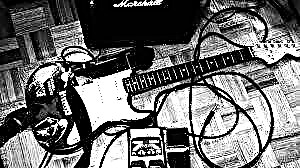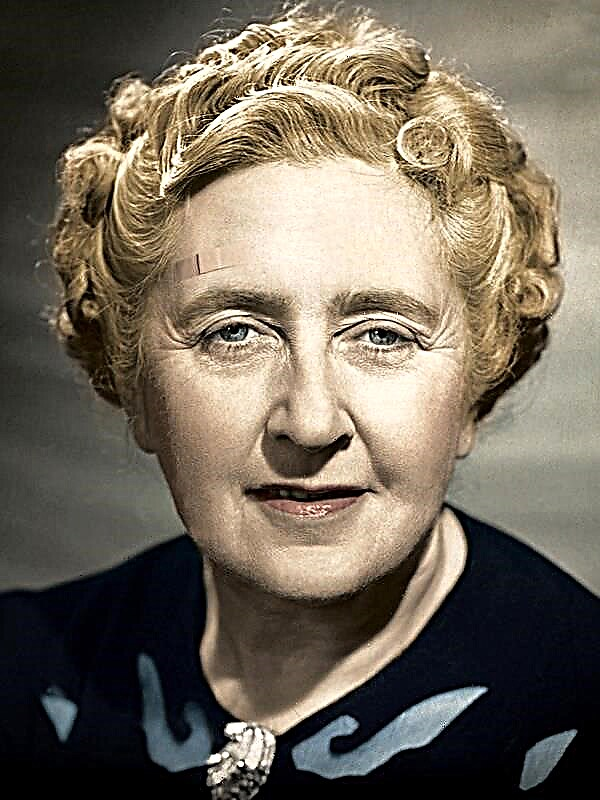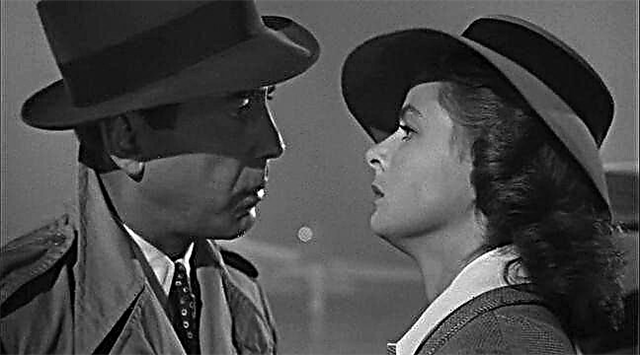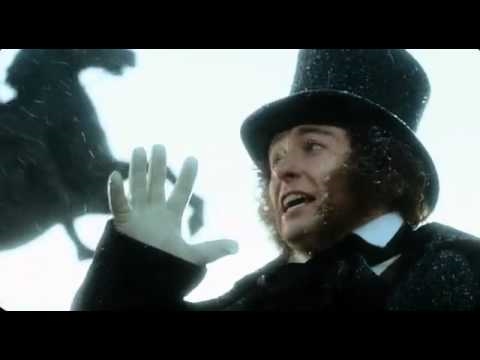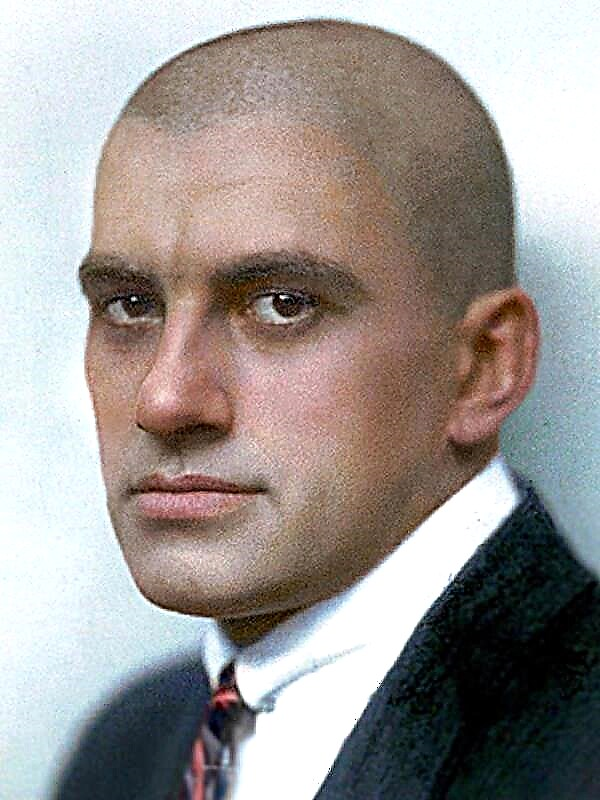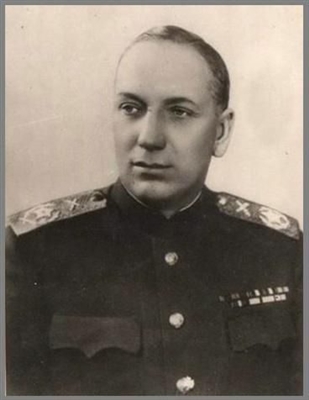I. Diogenes and Polydeus
The gathering once again to return to the land Polydevka Diogenes gives instructions. He must convey to the cynic Menippus (who ridicules all empty-minded philosopher-debaters) that in the realm of the dead he will have even more reasons for fun and ridicule, because here tyrants, rich people and satraps are extremely miserable and powerless. And he advises all philosophers to stop meaningless disputes. The rich Diogenes tells us not to accumulate jewelry, collecting talent for talent, because soon they will go underground, where they will need only one obol to pay Charon for transportation.
But the poor should not complain about their fate: in the kingdom of the dead, everyone is equal - both the rich and the poor. Polydeuk promises to fulfill these and other orders of Diogenes.
II. Pluto, or Against Menippus
Croesus complains to Pluto: the restless Menippus, a philosopher-cynic, continues to taunt the rich and sovereign in the underworld: “We all cry, remembering our earthly fate: this one, Midas, is gold, Sardanapalus is a great luxury, I, Croesus, - his countless treasures, and he laughs at us and swears, calling us slaves and scum ... "
Menippus admits to Pluto that this is so: he enjoys ridiculing those who grieve over the lost blessings of the earth. Pluto calls on everyone to stop contention. But Menippus believes that the former satraps and the rich are worthy of ridicule only: “Fine, that's right. Cry, and I will sing along with you, repeating: “Know thyself!” - this is a very good refrain to your moans. ”
III. Menippus, Amphilochus and Trophonius
Menippus is indignant: ordinary Amphilochus and Trophonius after death are awarded temples, and people consider them prophets. But the heroes Trophonius and Amphiloch modestly reply that gullible people give honors to them voluntarily. As for the prophetic gift, the future Trophonius is ready to predict to anyone who descends into his Lebadeysky cave. And to the question of Menippus, who is this hero, Trophonius answers: "This is a creature composed of God and man." “I do not understand, Trophonius, what you say; I see one thing clearly: you are dead, and nothing more, ”concludes Menipp's dialogue.
IV. Hermes and Charon
Hermes reminds Charon that he owed him a lot: five drams for the anchor, and even for wax to cover holes in the boat, for nails, for the rope that fastens the mast to the mast, and much more. Charon replies with a sigh that he still cannot pay: “Now I can’t do it, Hermes, but if there is some kind of plague or war will send a lot of people to us, then it will be possible to earn something by counting the dead on payment for moving” . But Hermes does not want to return what was spent in such a sad way. He agrees to wait. He only sighs with a sigh that if earlier mainly courageous people had come to the underground kingdom, most of whom died from wounds received in the war, then now it’s not at all like this: one was poisoned by a wife, the other died from gluttony, and most die due to financial intrigues. And Charon agrees with him.
V. Pluto and Hermes
Pluto asks Hermes to extend the life of the ninety-year-old childless rich man Eucrates. But chasing his money, wishing to receive the inheritance of Harin, Damon and others as soon as possible to drag into the kingdom of the dead. Hermes is surprised: he thinks this is unfair. But Pluto says that those who long for the sudden death of a neighbor, pretending to be friends, are themselves worthy of a quick death. And Hermes agrees: throwing such a joke with villains will only be fair. And let the hardworking Eucritus, like Iolaus, take off the burden of old age and rejuvenate again, and young villains awaiting his death in the prime of hope will die like bad people.
VI. Terpsion and Pluto
Terpsion complains to Pluto: he died in his thirtieth year of life, and the ninety-year-old Fukrit is still alive! But Pluto considers this fair: Fukrit did not want anyone to die, but Terpsion and similar young people flatteringly look after the old people, suck at them in the hope of inheriting. Doesn't such self-interest deserve punishment ?!
Terpsion lamented that he had not slept for many nights, greedily calculating the possible term of Fukrit's death and the amount of the alleged inheritance. As a result, he was overworked and he died first. Pluto vigorously promises that other mercenary carers will soon descend into his kingdom. And let Fukrit continue to live until he buries all the flatterers who are eager for someone else's good.
VII. Zenofant and Callidemide
Kallidemid tells Zenofant how he died due to the fatal mistake of a slave. Desiring to quickly send the old man Pteodor to the next world, he persuaded the butler to serve the owner with a cup of poisoned wine. But he confused the vessels (by chance or not - it is unknown) and as a result the young poisoner himself drained the cup of poison. And old Pteodor, realizing what had happened, laughed merrily at the butchery's mistake.
Viii. Knemon and Dunnippe
Knemon tells Dunnippe how fate had fooled him. He intensively courted the childless rich man Hermolaus in the hope of the latter’s inheritance. And in order to guarantee the favor of the old man, he announced his will, where he declared Hermolaus his heir (so that he would do the same out of gratitude). But a beam suddenly fell on Knemon, and old Hermolaus received all his property. So Knemon fell into his own trap.
IX. Simil and Polistratus
The ninety-eight-year-old Polistratus finally fell into the kingdom of the dead and tells Simil that he has lived especially well for the last two decades. The best men of the city were looking for the location of the childless old man, hoping to become his heirs. Without abandoning their courtship (and promising everyone to make him his own heir), Polistratus deceived them all: he made the recently bought handsome Phrygian, a slave and his favorite.
And since he suddenly became a rich man, now the most notable ones are looking for his dispositions.
X. Charon, Hermes and the various dead
Charon is about to bring another batch of the dead and draws their attention to the deplorable state of his little ship. He offers passengers to free themselves from excess cargo and asks Hermes to follow up on this. The messenger of the gods is taken up. At his direction, the philosopher-cynic Menippus readily throws his miserable bag and stick. And Hermes puts him in a place of honor near the helmsman. Hermes orders Hermes to beautify Hermes to take off his long hair, blush and all skin in general. Tirana Lampihu orders to leave all the wealth on the shore, and at the same time - arrogance and arrogance. The commander has to give up weapons and trophies. The philosopher-demagogue is forced to part not only with lies, ignorance and hunting for empty arguments, but also with a shaggy beard and eyebrows. And when the annoyed philosopher demands that Menippus leave his freedom, frankness, nobility and laughter, Hermes energetically objects: these are all easy things, it’s easy to transport them, and they will even help in a sad way. And the boat of Charon is sailing away from the shore.
Xi. Kratet and Diogenes
Crathet ironically tells Diogenes that the rich cousins Merich and Aristey, being peers, took care of each other in every way and each declared the heir to the other in the hope of surviving him. In the end, both died at the same hour during a shipwreck.
But Kratet and Diogenes did not wish each other death, for they did not lay claim to the meager possessions, quite content with the mutual exchange of wise thoughts - the best of inherited wealth.
XII. Alexander, Hannibal, Minos and Scipio
Alexander and Hannibal dispute primacy in the kingdom of the dead. Minos invites everyone to tell about his deeds. The great commanders list their well-known victories and conquests, in every possible way trying to humiliate an opponent. But when Minos is about to make a decision, Scipio suddenly speaks up and recalls that it was he who defeated Hannibal. As a result, the championship is awarded to Minos by Alexander, the second place by Scipio, and Hannibal is the third.
Xiii. Diogenes and Alexander
Diogenes mockingly remarks: Alexander still ended up in the kingdom of the dead, despite his supposedly divine origin. The great commander is forced to agree. In the meantime, for thirty days his body has been lying in Babylon, waiting for the magnificent funeral in Egypt, so that he thus became one of the Egyptian gods. Diogenes sarcastically remarks that Alexander did not grow wiser after death: he believes in such nonsense. And in addition, he also cries, remembering earthly honors and delights. Really his teacher philosopher Aristotle did not teach his student: wealth, honors and other gifts of fate are not eternal. Alexander admits with frustration that his mentor was a greedy flatterer. He argued that wealth was also good: thus, he was not ashamed to accept gifts. In conclusion, Diogenes advises Alexander to regularly drink water from Leta in large sips: this will help him to forget and stop mourning for Aristotle's benefits.
Xiv. Philip and Alexander
Alexander, having met with his father in the next world, is forced to acknowledge his earthly origin. Yes, he knew this before, but supported the version of his divine genealogy in order to make it easier to conquer the world: most of the conquered peoples did not dare to resist God.
Philip mockingly remarks that almost all whom his son subjugated were not worthy opponents both in courage and in combat training. Not at all the Hellenes whom he defeated, Philip ... Alexander recalls that he defeated both the Scythians and even the Indian elephants. But didn’t he destroy the Greek Thebes ?!
Yes, Philip heard about it. But it is funny and sad that Alexander took over the mores of the conquered peoples. And his vaunted courage was not always reasonable. And now, when people saw his dead body, they finally became convinced: Alexander is not a god at all. And Philip advises his son to part with pompous conceit, to know himself and to understand that he is a simple dead man.
Xv. Achilles and Antilochus
Antilochus reproaches Achilles that he is ignoble and unreasonable: he declared that it is better to serve the living as a day laborer for the poor plowman than to reign over all the dead. So it is not appropriate to speak to the most glorious of heroes. Moreover, Achilles voluntarily chose death in the halo of glory.
Achilles makes excuses: the posthumous glory on earth does not need him, and among the dead there is complete equality. He has lost everything here: dead Trojans are no longer afraid of Achilles, and the Greeks do not show respect.
Antilochus consoles him: this is the law of nature. And he advises Achilles not to murmur on fate, so as not to make others laugh.
Xvi. Diogenes and Hercules
Diogenes in his usual ironic manner asks Hercules: how did he, the son of Zeus, die too ?! The great athlete objects:
"The real Hercules lives in the sky, and I - only his ghost." But Diogenes doubts whether the opposite happened: Hercules himself is in the realm of the dead, and in heaven is only his ghost.
Hercules is angry with such insolence and is ready to punish the scoffer. But Diogenes reasonably remarks: "I have already died, so I have nothing to fear from you." Then Hercules annoyingly explains: what was in him from the earthly father of Amphitrion, then died (and this is he, underground), and that from Zeus lives in heaven with the gods. And these are not two Heracles, but one in two images. But Diogenes is not appeased: he already sees not two, but three Hercules. The real Hercules lives in heaven, his ghost - in the kingdom of the dead, and his body turned to dust. Even more outraged by this sophistry, Hercules asks: “Who are you ?!” And he hears in response: "Diogenes of Sinope is a ghost, and he lives with the best among the dead and laughs at Homer and all this high-flattering chatter."
Xvii. Menippus and tantalum
Tantalum dies of thirst, standing on the shore of the lake: water flows through your fingers, and he can not even moisten his lips. To the question of Menippus, how he, long dead, can feel thirst, Tantalus explains: this is the punishment that has befallen him: the soul feels thirst, as if it is a body.
Xviii. Menippe and Hermes
Once in the realm of the dead, the philosopher Menippus asks Hermes to show him the glorified beauties and handsome men and is surprised to learn that Narcissus, Hyacinth, Achilles, Elena, and Leda are now uniform skulls and skeletons, no more. And the fact that Elena was so beautiful during her life that for her sake she sailed to Three thousand ships with the Hellenes, causes only a mocking surprise at Menipp: they really did not understand the Achaeans: they are fighting for that which fades so short and soon!
But Hermes invites him to stop philosophizing and quickly choose a place among the other dead.
XIX. Eac, Protesilaus, Menelaus and Paris
The leader of the Thessalians Protesilaus, the first of the Greeks who died during the siege of Troy at the hands of Hector, wants to strangle Elena (although in the realm of shadows this is both impossible and pointless). He explains to Eaku that he died precisely because of Elena. But he immediately agrees that Menelaus is perhaps guilty of everything, who carried away the Hellenes under Troy. And Menelaus (he, of course, is also here) dumps everything on Paris - a guest who treacherously abducted his master’s wife. Paris asks Protesilaya to remember that both of them were passionately in love during their lifetime and therefore must understand each other. And Protesilaus is ready to punish Eros, guilty of everything. But Ehak recalls: “You forgot about your young wife, and when you landed on the shore of the Troas, you jumped off the ship before the others, recklessly endangering yourself from only thirst for glory, and therefore died first.” And Protesilaus comes to the conclusion: it is not Elena and other mortals who are guilty of his premature death, but the goddess of Moira's fate.
XX. Menippus and eac
Menippeus asks Eak to show the sights of the underworld: he wants to see its most famous inhabitants.
The philosopher is amazed: all the glorious heroes of Homer's poems turned to dust - Achilles, Agamemnon, Odysseus, Diomedes, and many others. But most of all he is attracted by the sages - Pythagoras, Socrates, Solon, Thales, Pittak ... They don’t be sad among the dead: they always have something to talk about.
Having talked with them, Menippus does not resist the rebuke of Empedocles that he rushed into the crater of Etna out of an empty thirst for fame and considerable stupidity. But he tells Socrates that on earth everyone considers him worthy of surprise and respects him in every way. And then he goes to Sardanapalus and Croesus to laugh while listening to their woeful cries. Eak is returning to his gatekeeping duties.
XXI. Menipp and Kerber
Menippus asks Kerber to tell how he entered the netherworld of Socrates. And the three-headed dog recalls: Socrates behaved with dignity only at the beginning of the journey, and when he looked into the cleft and saw the darkness, he burst into tears like a baby, and began to grieve over his children. And all the sophistic principles were already forgotten here ...
Only Diogenes and he, Menippus, behaved with dignity: they entered the kingdom of the dead of their own free will and even with laughter. Yet the rest of the philosophers were not up to par.
XXII. Charon and Menippus
The lame carrier Charon demands from Menippus the usual payment for delivery to the next world - one obol. But he does not want to pay. For, among other things, it does not have a single coin. And he offers to pay Hermes - who brought him to the borders of the kingdom of the dead ...
“I swear by Zeus that I would profitably settle down if I still had to pay for the dead!” - exclaims the messenger of the gods. And to the reproaches of Charon that he is the only one who sailed to the realm of the dead for nothing, Menippus calmly objects: no, not for nothing. After all, he scooped up water from a leaky boat, helped to row, and the only one of all did not cry. But Charon does not calm down. And Menippe offers: “Then take me back to life!” “So that Eak beat me for this ?!” - horrified Charon. And to his question, who is this sitting in his boat, Hermes says: he transported for free a husband who is infinitely free, who does not take into account anyone and nothing! This is Menipp!
Xxiii. Protesilaus, Pluto and Persephone
Protesilaus, the first of the Greeks to die near Troy, begs Pluto to let him go to earth for only one day: even the summer waters did not help him forget his beautiful wife. But for the same reason, Eurydice was given to Orpheus, and they released Alkestid out of mercy for Hercules. And besides, Protesilaus hopes to persuade his wife to leave the living world and, together with her husband, go down to the underworld: then Pluto will already have two dead people instead of one!
In the end, Pluto and Persephone agree. Hermes returns Protesilaus the former flowering appearance and brings forever in love to the earth. And after him Pluto reminds him: “Do not forget that I let you go only for one day!”
Xxiv. Diogenes and the Mausoleum
Kariets Mausoleum, a tyrant of Halikarnassus, is proud of the conquests, beauty and size of the tomb (one of the seven wonders of the world: the name “mausoleum” came from it). But Diogenes reminds the king: now he is deprived of both conquered lands and influence. As for beauty, now its bare skull is difficult to distinguish from the skull of Diogenes. And is it worth it to be proud of lying under a heavier stone mass than others ?!
“So all this is useless? The mausoleum will be equal to Diogenes ?! " The tyrant exclaims. “No, not equal, most respectable, not at all. The mausoleum will cry, recalling the earthly blessings that he thought to enjoy, and Diogenes - to laugh at him. For after himself he left among the best people the glory of a man who lives a life higher than the tombstone of the Mausoleum, and based on more solid soil. "
Xxv. Nireus, Tercyt and Menippus
The handsome Nireus, glorified by Homer, and the freak, the pointed-headed hunchback Tersit (ridiculed in the Iliad) appeared before Menippus in the realm of shadows. The philosopher admits that now they are equal in appearance: their skulls and bones are quite similar. “So I’m not at all prettier than Tersit here?” - Nireus asks offendedly. Menippe replies: "And you are not beautiful, and no one at all: equality reigns in the underworld, and here everyone is alike."
XXVI. Menippus and Chiron
The wise centaur Chiron, the educator of Asclepius, Achilles, Theseus, Jason and other greats, refused immortality in favor of Prometheus. He explains to Menippus that he chose to die also because he was tired of the monotony of earthly life: the same sun, moon, food, the constant change of seasons ... Happiness is not that we always have, but that we not available. In the underworld, Chiron likes universal equality and that no one feels hunger and thirst.
But Menippus warns Chiron that he may conflict with himself: monotony reigns in the kingdom of shadows. And to seek a way out into a third life is already pointless. Menippe reminds the thoughtful and depressed centaur: the clever is content with the present, is glad of what he has, and nothing seems unbearable to him.
Xxvii. Diogenes, Antisthenes and Kratet
Three philosophers - Diogenes, Antisthenes and Kratet - are sent to the entrance to the underworld in order to look at the “new replenishment”. On the way, they tell each other about those who arrived here with them: everyone, regardless of their position in society and prosperity, behaved inappropriately - they cried, complained, and some even tried to rest. Such Hermes rolled onto his back and carried by force. But all three philosophers behaved with dignity ...
Here they are at the entrance. Diogenes turns to the ninety-year-old man: “Why do you cry if you died at such an advanced age?”
It turns out that this is a half-blind and lame childless fisherman, almost a beggar, not at all bathed in luxury. Nevertheless, he is convinced that even a poor life is better than death. And Diogenes advises him to consider death as the best medicine against adversity and old age.
Xxviii. Menippus and Tiresias
Menippus asks the soothsayer Tiresias if he really was not only a man, but also a woman. After receiving an affirmative answer, he inquires into the state in which Tiresias felt better. And, having heard that in a woman’s, he immediately quotes Medea’s words about the painful severity of a woman’s share. And on the pathetic reminders of Tiresias about the transformation of beautiful women into birds and trees (Aedona, Daphne and others), Menippus is skeptical that he will believe this only by personally hearing the stories of those who turned. And even the well-known prophetic gift of Tiresias, the restless skeptic Menippus questions: “You only act like all soothsayers: it is your custom to not say anything clear and sensible.”
Xxix. Ayant and Agamemnon
Agamemnon rebukes Ayant: having killed himself, you blame Odysseus for this, claiming to be the armor of Achilles. But the ayant persists:
other leaders refused this award, but Odysseus considered himself the most worthy. This was the reason for Ayant's frenzied madness: “The Odyssey cannot stop hating, Agamemnon, even if Athena herself had ordered me that!”
XXX Minos and Sostratus
Judge of the Underworld of Minos distributes punishment and rewards. He orders the robber of Sostratus to throw into the stream of fire - Pyriflegeton. But Sostratus asks to listen to him: after all, everything that he did was predetermined by Moira. And Minos agrees. And having heard a few more examples cited by Sostratus, with vexation in his soul, he comes to the conclusion: Sostratus is not only a robber, but also a sophist! And reluctantly orders Hermes: "Free him: the punishment is removed from him." And already turning to Sostratus: “Just look, do not teach the other dead to ask such questions!”

